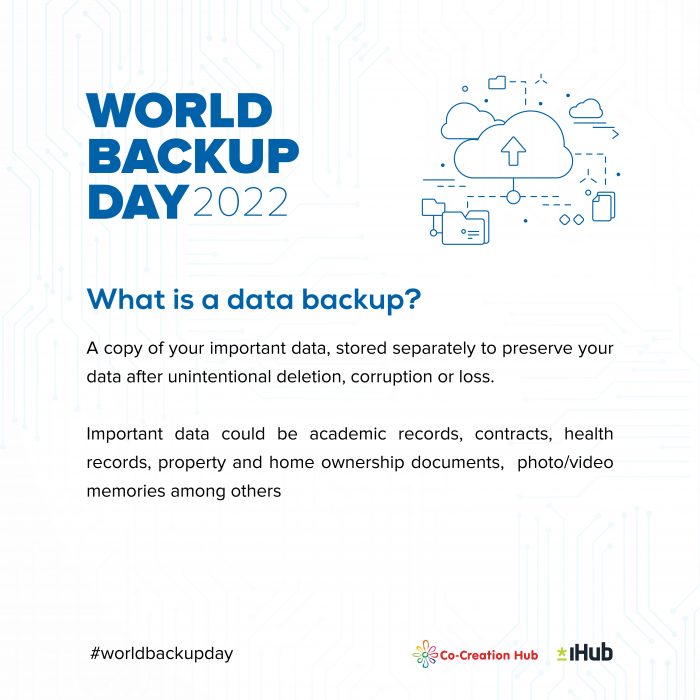In today’s digital world, data is a critical asset to organisations and individuals alike. Organizations rely on data to make informed decisions, strategize and solve problems. Therefore, Organizations employ various data protection measures to maintain data confidentiality, integrity and availability. Despite the implementation of these protections, data is still prone to loss.
Data loss occurs when data is destroyed, deleted, corrupted, or made unreadable by users and software applications. This renders it unavailable for use. Sometimes, lost files can be recovered with the assistance of IT professionals while in other instances, lost files and information cannot be recovered, making data loss prevention even more essential. Data backups can rescue the day in such circumstances, allowing businesses and individuals to recover and restore their information. Even with the clear advantages of backing up data, recent studies by BackBlaze, a cloud storage provider, show that 21% of people have never made a backup, revealing the need to raise more awareness. The World Backup Day exists solely to educate and raise awareness.

What is a data backup?
A data backup is a copy of your most important data, stored separately, to prevent data loss in the event of:
- Cyber incidents/attacks
- Loss of device (laptop, mobile phone, tablet etc)
- Accidental deletion
- Corruption of storage devices (hard disks, USB drives etc)
- Power failure
- Liquid spillage
- Other disasters
Where can you backup your data?
To effectively backup data, one must consider the frequency of backup, location and ease of access to the backup. This ensures a complete and quicker recovery time in the event of data loss. Data backups can be offline or online. The most commonly used methods include:
- Cloud backups: Cloud backups are advantageous because they are available anytime, anywhere, allowing quick recovery and easy access. Most cloud platforms offer free limited storage with various payment options to expand available storage space.
Cloud storage providers you could utilize include MEGA – 20 GB Free, Apple iCloud – 5 GB Free, OneDrive – 5 GB Free, Google Cloud – 15 GB Free
- External drive backups: Data is safely stored on hard drives, USB drives etc. When this method is used, ensure that the physical drive is stored separately to avoid loss during a disaster.
What next?
Take a pledge today to create at least one backup of your most important data. It could save you time and money. Should you or your organization encounter data privacy attacks, file corruption and other digital threats, CcHUB/iHub provides cyber incident handling services to help you recover and restore operations as quickly as possible.
IF YOU SUSPECT IT, REPORT IT👇
Email: digitalsecurity@cchubnigeria.com
Twitter: @safeonline_NG, @Cc_HUB

